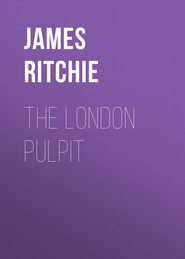По всем вопросам обращайтесь на: info@litportal.ru
(©) 2003-2024.
✖
Crying for the Light: or, Fifty Years Ago. Volume 1 of 3
Настройки чтения
Размер шрифта
Высота строк
Поля
‘How far is it to the railway-station?’ she asked of the committee who had managed the undertaking, and who, as the model men of the town, embalmed or embodied in themselves all those superior virtues which we invariably associate with respectability and wealth, as they stood in a semicircle round her chair, timidly and admiringly – timidly, for they were all respectable married men and had characters to lose; admiringly, because for two hours the actress, by her magic art, had opened up to them something greater and grander than even the busy life of Sloville town itself.
‘How far is it to the railway-station?’ repeated the Mayor, with an anxious and troubled visage, as if such a question had never been put to him before.
‘A carriage will take you there in less than ten minutes,’ said the Town Clerk, rushing, as he was bound to do, to the relief of the august head of the Corporation.
‘My mare will take you there in five minutes,’ said the old church Vicar, not willing to hide his light under a bushel, and at the same time glad to say a good word for the animal in question. His reverence, it is to be feared, was not much of a theologian, but there were two things which everyone admitted he did understand, and they were – horses and wine.
‘My brougham is quite at your service,’ said the Mayor, who was of the party, and who began to fear that unless he asserted himself he would be left out in the cold altogether.
‘Thank you, gentlemen, but I’d rather walk,’ said the actress.
She had passed her childhood in that town, and she was anxious to see what alterations had been made by Time’s effacing fingers since she had last looked wistfully at its shop-windows, or with girlish glee had walked its streets.
‘Walk!’ all exclaimed, in a tone which intimated not a little surprise at the absurdity of the idea.
‘Yes,’ repeated the lady calmly, ‘I’d rather walk. Why shouldn’t I? there is plenty of time, and the weather is beautiful. I really should enjoy it.’
‘Well, madam,’ said the Mayor, ‘if you insist upon it, of course we cannot be so rude as to prevent it. I think I may also say, on behalf of the Corpo – I beg pardon, on behalf of the committee, that if you do walk we shall all be delighted to accompany you to the railway-station.’
‘And so say all of us,’ said the Town Clerk, blushing as soon as he finished, fearing that the levity of his speech might not be acceptable to the Vicar. He was, however, delighted to find his remark received with universal assent.
‘You’re very kind,’ said the lady; ‘I am sorry to give you so much trouble.’
‘No trouble at all, madam,’ was, of course, the polite reply of the whole party.
‘You will take a little refreshment before you go?’ said the Mayor. ‘Let me offer you a glass of wine.’
‘No, I thank you, I’d rather not. I am a teetotaler.’
‘You don’t mean that,’ said the Mayor, who was a brewer, and who had ridden into place and power by means of his barrels; ‘you don’t think a glass of wine wicked, I hope?’
‘Oh no! I’m not so absurd as all that.’
‘Such an exciting life as yours must really require a little stimulus; let me give you half a glass,’ said the Vicar.
‘Not a drop, thank you.’
‘Then you have taken the pledge?’
‘Oh no!’ said the lady, laughing; ‘I am not so bad as to require that. I am never tempted to drink. If I thought it would do me any good, I would take a glass of wine; but I find I am better without it, and so I don’t.’
‘What, then, will you take?’
‘A cup of tea.’
‘A cup of tea – how provoking! That’s about the only thing we can’t give you here.’
‘Well, then, I will put up with a glass of water and a sandwich.’
The Mayor was shocked; he had never heard such a request from a lady before. In his distress he appealed to the Vicar for aid. His reverence was equal to the occasion, actually going so far as to quote St. Paul, and to tell how he recommended Timothy to take a glass of wine for his stomach’s sake and his often infirmities. His reverence did more: he enforced his argument by example, taking a glass himself, and at the same time recommending the rest of the committee to do the same. ‘Fine port that,’ said he, smacking his lips and holding up the glass to the light to see the beeswing.
‘Yes,’ said the Mayor; ‘it was a present to the Corporation from Sir Watkin Strahan.’
The lady coloured as she heard the name. It was observed by the committee, whose inferences were not of the most charitable construction. Everyone knew that Sir Watkin was rather fast, and was supposed to have great weaknesses as far as actresses were concerned. The situation was becoming embarrassing.
‘Had we not better be moving?’ asked the lady, rising from her seat.
‘Well,’ said the Mayor, ‘if we start at once, we shall get to the station in ample time.’
The procession was then formed, the Mayor and the lady walking first, the Vicar and the Town Clerk bringing up the rear. Only one of the committee had gone home. He was new to his office; he had made a lot of money in the shoe trade, and had recently retired from business, and was rather doubtful as to the propriety of being seen by daylight walking with an actress in the streets.
On they went. The general public, consisting of school-boys out of school, and of the usual loafers who stand idle all the day long in the market-place, or at the corners of public-houses and livery stables, were not a little shocked as the actress from the Royal Theatre, Covent Garden, walked along the streets as an ordinary Mrs. Jones or Brown might have done.
‘Well, I would ’ave ’ad a cab, at any rate,’ said the ostler of the leading hotel in the town, as the party passed, a remark cordially accepted by his hearers, a seedy and bloated set of horsey-looking men, who seemed to have nothing particular to do, and took a long time to do it in.
‘’Ow the dickens are fellows like me to get a livin’ if tip-top actresses like that ’ere young ooman take to walkin’? It’s wot I call downright mean. She’s been ’ere and took a lot of money out o’ the town, and han’t spent a blessed bob on a cab.’ Here the speaker, overcome with emotion, dived into the pockets of his ragged corduroys, and finding unexpectedly there the price of a pot of beer, repaired to the neighbouring bar, there to solve the question he had anxiously asked; or to forget it, as he took long draughts of his favourite beverage.
Meanwhile the actress and her attendant guardian angels continued walking, she rapidly striving to recollect old shops and old faces, whilst they mechanically uttered the unmeaning nothings that at times – and the present was one of them – are quite as acceptable as real talk. As if by magic, the news spread that the actress was walking to the station, and great was the joy of the young men who served in all the fine shops in the market-place, who had never seen a real live actress from London in the daytime before, and whose remarks were of a highly complimentary order. The shop-girls, who stared, were equally excited, but perhaps a little more disposed to be critical. Further from the town centre the excitement was less evident. People in the genteel villas scarce deigned to turn their heads. To be emotionless and self-possessed is the object of gentility all the world over. People in genteel villas are not easily excited. In the low neighbourhood nearer the station, inhabited by guards and porters and stokers and signalmen, where engines are perpetually whistling and screaming and letting off steam, there was no excitement at all. In such places, during business hours, one has something to think of besides actors and actresses, and so the station yard was very quickly gained. Only were to be seen a few young swells of the town, who turned very red if the actress looked their way, simply gazing respectfully from afar, wishing that they had been walking with the actress instead of the Town Clerk, the Vicar, or the Mayor. The latter worthy was a little proud of his position. He had by his side and under his protection one whom he remarked, aside to his friends, was not only an actress, but a deuced fine woman. The influence of a fine woman on the male mind, especially in the provinces, where overpowering female beauty is scarce, is marvellous. Even the reverend Vicar was not insensible to its fascination; while the Town Clerk, who was a bachelor, was, therefore, very legitimately in the seventh heaven, wherever that may be; and when Sir Watkin Strahan’s family coach, with the three old maids of that old family, drove up, those excellently disposed ladies, to whom all Sloville was in the habit of grovelling, for the first time in their lives almost found themselves slighted, though as to what there was extraordinary to look at in that actor-woman from London they could none of them see.
Suddenly the aspect of affairs was changed.
Just outside the railway-station, on the bare earth, sweltering in the summer sun, was a bundle of rags. The actress was the first to perceive it
‘What is that?’ she exclaimed,
‘A bundle of rags,’ said one.
‘And of very dirty ones too,’ said another.
‘Good heavens,’ said the lady, ‘it is a living child.’
‘A child! Impossible.’
‘Yes, I tell you it is, and we must save it.’
The actress led the way to the bundle of rags. They were the only clothes of a little lad who, hatless and shoeless and shirtless, was lying on the ground – to be trampled on by horses or men, it seemed to matter little to him. To him approached the awfulness of respectability as embodied in the persons of the Mayor and the Vicar, but he never moved; he was too tired, too weak, too ill to rise. Half awake and half asleep there he lay, quite unconscious, as they looked in his face – thin with want, grimy with dirt, shaded with brown curling hair. Presently the lad got upon his legs with a view to running away – that’s the invariable etiquette on the part of ragged boys in such cases – but it was too late. Already the enemy were on him. Holding his right hand across his brow so as to shade his eyes, he plucked up his courage and prepared for the encounter.
‘Hulloa, you little ragamuffin, what are you up to here?’ said the Mayor, in a tone which frightened the poor boy at once.
‘Pray don’t speak so, Mr. Mayor,’ said the actress; ‘you’ll frighten the poor boy.’
‘Dear madam,’ said the august official, ‘what are we to do?’
‘Save the child.’
‘Ah! that’s easier said than done. Besides, what is the use of saving one? There are hundreds of such lads in Sloville, and we can’t save ’em all.’
‘Quite true,’ said the Vicar, professionally shaking his head.











